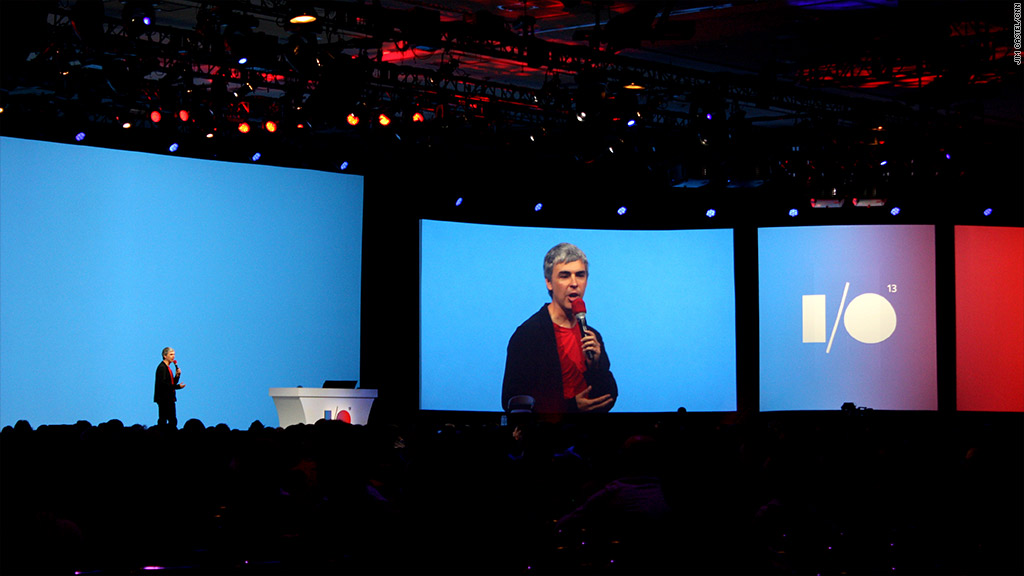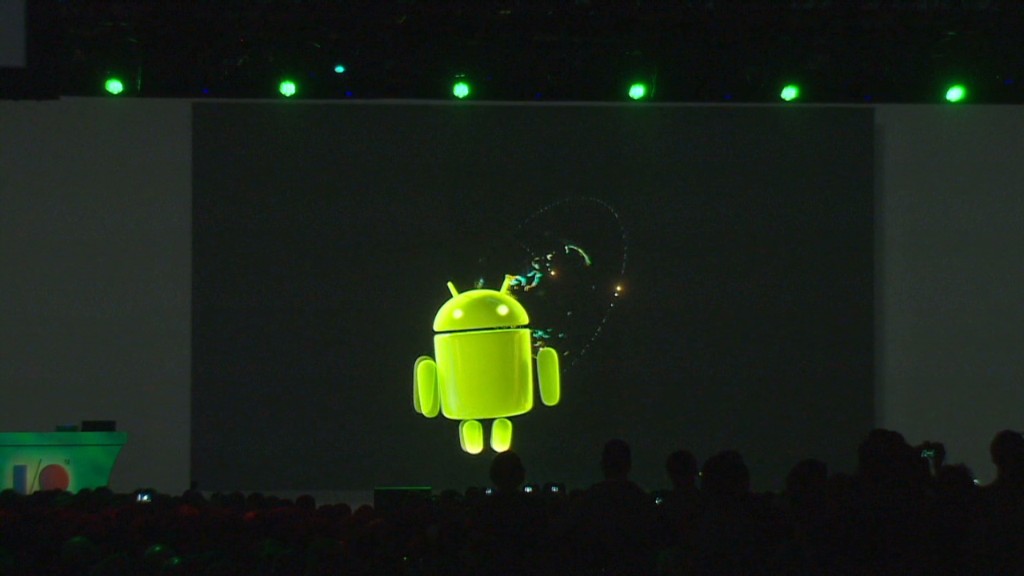
Google CEO Larry Page delivered a simple message to a crowd of developers Wednesday: we need to stop fighting over little things and work together.
What initially began as a series of reflections on the tech industry, Page expanded his scope to share some thoughts on the development of the world and society, and what technology's role is in fostering that.
Page also criticized Microsoft (MSFT) (who has been in patent battles with Google) for integrating Google's (GOOG) Gchat service into its Outlook mail client and refusing to reciprocate. He also called out Oracle (ORCL), which owns the Java programming language, saying that "money is more important to them than collaborating."
In an era when Google and other major tech companies, such as Amazon (AMZN), Apple (AAPL), Facebook (FB), Microsoft and Samsung, are all trying to build their own, all-inclusive tech ecosystems, it was exciting to hear Page come say that the current, hyper-competitive environment was hurting tech more than it was helping. (Of course, Google also slapped Microsoft with a cease and desist over Microsoft's YouTube app for Windows Phone 8).
Related: Why Larry Page's kumbaya moment sounded hollow
But Page also launched into a thoughtful discussion about problems modern society faces, and how technology can help solve them.
Page spoke loftily of issues regarding the world's food supply, health care, and communication technologies in developing nations. He advocated moving beyond short fixes in an incremental manner, and suggested we all embrace a long view where we think more about solving problems over a span of decades.
One of Page's biggest thoughts was that the world allow more room for experimentation. This idea, naive as it may be, is that there should be a place where people can go and experiment with these ideas. (Think along the lines of the Dharma Initiative from Lost).

But the most striking part of Page's talk was how candid and genuinely optimistic he was about the future of technology and what we can do with it. He wasn't trying to sell anything, nor was he insisting that he knew all the answers. He just wants the most innovative people in the world to get back to sharing big ideas and solving bigger problems.
Related: Page explains why he lost his voice
Of course, it's wholly unrealistic to expect that this idealism will ripple throughout every corner of Google, or that the company is going to radically change course in the name of altruism -- even if its famous corporate motto is "Don't be evil."
But at least knowing that the leader of one of the biggest companies in the world is still driven by a vision that technology can change the planet for the better is something that can restore faith in an industry that continues to grow increasingly cynical.

